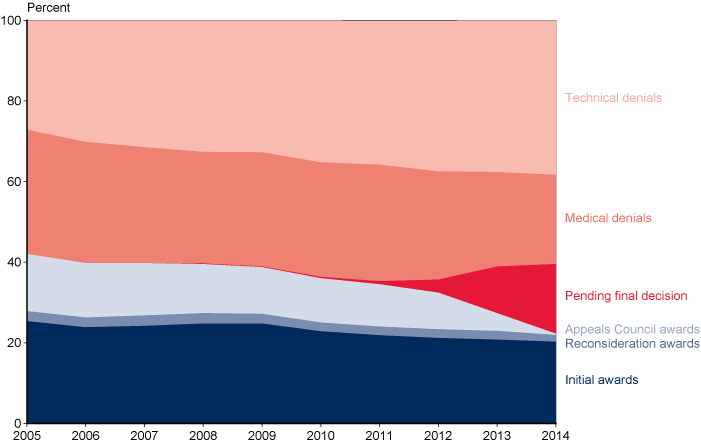Judges have very limited time to spend on a case. They are required to issue up to 700 decision a year, or over 50 per month. One case may have thousands of pages of medical records and other documents to review. Your attorney or representative can help the judge, and your chance of winning, by pointing out what the judge needs to know.
- Is this claimant insured for benefits?
- What kind of past work did the claimant do?
- Does he or she meet a Listing or grid rule?
- Are there any transferable skills?
- Does the medical record support the alleged onset date? If so, where?
A good representative will read and analyze the medical records, which are the foundation of every case. The important evidence will be pointed out to the judge. Are there MRIs or imaging studies to prove the alleged impairments? Where can they be found quickly?
Do any of the treating doctors provide an opinion on the claimant's ability to perform work-like activities? How do these opinions limit the claimant's residual functional capacity?
Then we come to the claimant's testimony. It's very important that the claimant has been prepared and knows what to expect--and how to answer. The testimony should match up with what the doctors say in the records.
Award rates among Social Security judges are lower now than at any time in the past 30 years. A lot of things have to line up and make sense for the judge.
I always provide the judge with a pre-hearing brief. That means that I give her a step-by-step view of the case and why the federal regulations allow benefits to be paid. The brief condenses hundreds (or thousands) of pages of medical evidence into 3 or 4 pages that can be read in about five minutes. So, I try to help the judge make efficient use of his/her time.
A lot of times I can answer difficult or technical questions for the judge. This can also help to get a favorable decision out more quickly.
It's risky to walk into a hearing and just hope for the best. Those kind of hearings often don't go well for the claimant. It's much better to have a legal roadmap of where you want to go and how to get there. That's worth paying the attorney/representative a fee when your case is successful.
So, talk to a representative early in the process. I think most people who appoint me to represent them decide after just a few minutes that I can add value to their case. I have to think so, too, or I won't take the case. The best of all worlds is when the claimant and representative work well together as a team.
______________
Charles W. Forsythe
The Forsythe Firm
7027 Old Madison Pike NW, Site 108
Huntsville, AL 35806
"Across from Bridge Street"
CALL (256) 799-0297
https://forsythefirm.wixsite.com/website
Send Us an Email: forsythefirm@gmail.com



